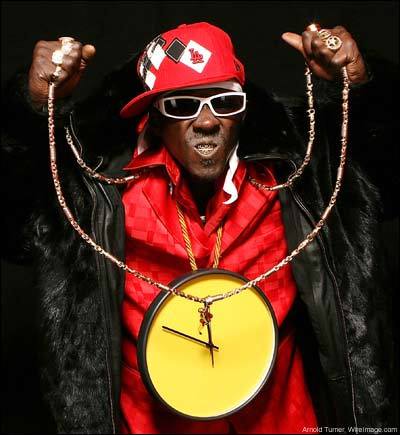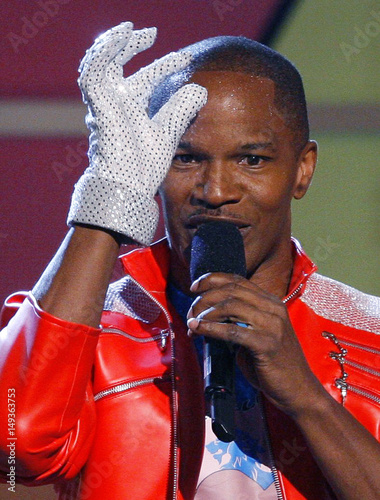|
MicrostockGroup Sponsors
This section allows you to view all posts made by this member. Note that you can only see posts made in areas you currently have access to.
Messages - unnonimus
Pages: 1 ... 3 4 5 6 7 [8] 9 10 11 12 13 ... 18
176
« on: May 22, 2018, 06:26 »
you said: "Ever heard of scrims or diffusers or perhaps open shade???"
I have reviewed where people demonstrate these techniques on youtube, and I am not happy with the resulting quality of the skin color or shading on the model. I am looking for a solution whereby I can get the best photo with natural lighting.
178
« on: May 22, 2018, 04:43 »
In a recent shoot, I just bought a new camera (Nikon D3400) and accidentally hit the button to adjust the exposure for one of the programmable modes. Also I just started out with photos and previously was doing video with a SONY. I look through the eyepiece, and it was a bright sunny day, so I did not notice that the exposure was being darkened quite a lot, until I did an image review, which I do after about 25 or 30 photos.
so my question is... if the exposure is adjusted by the camera using the manual function to adjust it, and it is quite dark, will there be any artifacting from software correction? the images have already been corrected. they look a little strange.
179
« on: May 22, 2018, 04:33 »
you said: "You can get the same image with 85mm F1.4 - F2.8 lens on a full frame camera. You only need to get closer. "
the problem I have is that I see too much of the background that I don't want to see when I use the smaller mm lens, objects to the far left and far right behind the subject.
based on the advice of people in this forum, I may just stick with my APS-C and switch to a prime lens.
180
« on: May 22, 2018, 04:29 »
you said: "avoid any chance of being complicit in a case that could set you back thousands or tens of thousands of dollars. Makes sense."
there are no lawsuits against stock agencies because someone saw a portion of his clothing in a photo made available for sale. I have searched. the concept of stock agencies being under threat of lawsuit is a false argument.
181
« on: May 22, 2018, 04:26 »
SpaceStockFootage, you are ignorant about copyright laws and you are ignorant about your rights as a photographer.
182
« on: May 22, 2018, 04:22 »
when I film I ask the model to sign 10 to 15 different forms, one from each agency, so that I am always covered if an agency has a problem with a form.
183
« on: May 22, 2018, 04:14 »
you said: "Is model have right to ask me or agency to delete photos if I have valid model release and regularly pay for model fee."
any photo you take with your camera is copyrighted by you. you have the full ownership and rights to your photos, even if the model does not sign a release form.
release forms are for when the image is used in advertising. it is the buyer of each photo who takes a risk that using the photo in advertising might not be legal. you provide him the form to show you did your work legally.
you can sell your photos to anyone if it falls under "Fair Use" such as editorial or educational use. if the image is being used for advertising, then the buyer of the photo needs the model's permission.
the agency does not ask how the image is being used when it is bought by the buyer. the agency does not know if the buyer is using it under Fair Use (editorial, educational use, etc) or whether it is for commercial use (advertising).
some agencies default all of their photos to Editorial, so you do not need a model release form, but most do not, and for those, you need the form.
if the image is never used in advertising to the general public, then you cannot be sued, and the agency cannot be sued (in the US the agency is protected by the DMCA). there is no law prohibiting you from making the photo available for sale. the problem can occur once someone uses it in an ad, if he does not have the model's permission. the MRF states that the model relinquishes all rights to the photos.
canstock's form says: "This Agreement applies to any and all photographs, footage, and recording of the Model and the Model's property made
by the Photographer". there is no shoot date or date restriction. if you used canstock's form, you are safe becuase the model is releasing rights to all photos made by you without restriction. some forms have shoot dates, and unless you have each date listed, you are not covered.
any and all photos can be used for editorial or educational photos, without the model release form, and therefor, lack of a model release form is not sufficient for preventing a photo from being made available for sale by an agency.
184
« on: May 22, 2018, 03:52 »
you said: "Again, the OP being parochial regarding laws, and totally disregarding the point that agencies are perfectly free to make their own rules. Their ball, their game."
the agency's rules are based on misinterpretations of laws, and prevent you from engaging in commerce.
in addition, I am perfectly free to educate people about the facts in this matter.
185
« on: May 22, 2018, 03:50 »
here is a legal excerpt that you can read and make your own determination: http://www.gw-law.com/blog/news-publicationsMcCarthy at Sec. 3:2. Invasion of Privacy � Misappropriation In general, to establish a prima facie case of liability for invasion of privacy through misappropriation, the plaintiff must establish the following: (1) Defendant, without permission, has used some aspect of the plaintiff�s identity or persona in such a way that plaintiff is identifiable from defendant�s use. ----- so in order to violate someone's rights:' - you have to use a portion of that person's identity or persona (such as Michael Jackson's glove). it is unlikely that a photo that contains a portion of a person's clothing is using that person's persona or identity. as explained extensively in the original post. - you have to prove that the plaintiff is identifiable. note it does not say self-identifiable. it means identifiable by the general public. think about it. these are privacy laws. how can someone be invading your privacy (prima facie case of liability for invasion of privacy through misappropriation) if you self-identified yourself? if the general public cannot identify you, then your privacy has not been invaded, and it is not a violation of likeness laws.
186
« on: May 22, 2018, 03:29 »
laws regarding likeness are very clear that a person's likeness can extend to his clothing if his clothing has become part of his identity, as viewed by the general public.
however, a person's likeness cannot be extended to his clothing simply because he can self-identify himself wearing those clothes.
187
« on: May 21, 2018, 23:55 »
you said: "What other recourse do I have to get them to remove my images?"
DMCA Take Down Notice
188
« on: May 21, 2018, 23:21 »
you said: "Years ago, when I was first starting with iStock, I had a shot of a balloon salesman on the beach in Cabo. You could see nothing of him but the lower part of his legs, as he was totally covered in balloons. iStock rejected it for trademark. "
trademarks are protected by the lanham act. there is nothing in the lanham act that prevents you from taking photos of trademarks and selling those photos.
daniel moore vs u of alabama has upheld that it is legal to sell photos that contain trademarks.
189
« on: May 21, 2018, 23:15 »
you said: "I think you miss the point entirely. "
no, you are completely wrong.
the stock agencies have made up their own imaginary rules that are not supported by laws. they drew the line somewhere. the problem is that we can easily move the line, using their own understanding of trademarks and copyrights, to basically make everything illegal.
for example, stock agencies think that clothing can be trademarked or copyrighted and therefor cannot be in a photo. they are wrong. if they were right, by their own definition, you could argue that only photos that depict completely nude people are legal, and all photos that show any clothing should not be permitted.
recently announced, no photos that have animals such as monkeys in non-natural positions (such as wearing a tie and hat), because the monkey did not decide to willingly wear the clothing. by the same definition, the stock sites should ban all photos of babies, people in jail, or anyone else who is doing something unwillingly. babies and incarcerated people don't get to decide the clothes they wear. kids under 4 can't make decisions for themselves so all photos of kids under 4 should be banned.
stock agencies think that manufactured goods, such as cars, houses, property, toys, sunglasses, are all protected by rights that prevent us from selling photographs with those items. the agencies are wrong. if they were rgith, you would not be able to sell any photo that contains any man made product, including blank walls because clearly by the agency definition the sheetrock is protected intellectual property.
you can't film in national parks due to recent laws about commercial use of federal lands, clothing is protected, all manufactured goods are protected, so by their definition we can only legally film nude people and some nature photos. they are wrong.
the true fact of the matter is that you have the right to sell almost any photo you take because trademarks and copyrights are for protected classes and do not transfer to photography. for example, you can have ford motors and ford bakeries but you can't have 2 companies using the ford name to make cars.
copyrights protect the photo, not what is in the photo. you run into problems if you make exact duplicates of other people's works (such as photographing another photo). you can take photos of logos such as the Ford logo and sell it. it has been upheld in court (Daniel Moore vs U of Alabama).
the US copyright office has an extensive list of products that are not protected by copyright, that is freely available, yet stock agencies claim that they have copyright protection that they explicitly do not have. stock agencies do not use the resource of government information to interpret copyright laws, they just make up their own laws based on vast misunderstandings of laws.
ignorance has harmed the stock industry.
190
« on: May 21, 2018, 21:39 »
what does it mean for a person to be recognizable by his clothing? This rule is widely misunderstood in the stock community but I am going to explain it to you. First of all, when it comes to model releases and 'likeness', most federal governments do not have laws that stipulate a requirement for model release forms. In the US, at the federal level, this requirement would fall under case law. In most countries, you can film people in the general public view without their permission. In the US, each state will have different laws. However, depending on how the photo is used, you might violate a law (editorial vs commercial). i As an example, you have probably heard stories where someone takes a day off from work (to attend a concert or sporting event), and they get caught by their employer because they end up having their photo appear on the front page of a newspaper. the newspaper does not need a model release form because it is being used for editorial purposes. For commercial purposes, you usually need the person's permission to appear in an ad. However, sometimes you will have people in the photo or video whose face is not shown but are recognizable due to their clothing. What does this mean? Some people can be recognized by their clothing, by the general public. Some examples are Michael Jackson, Larry Bird, Liberace, Kareem Abdul Jabar, Elvis, Punky Brewster, etc. meaning that if you completely obscure their face, you can still recognize the person because their clothing has become part of their identity.
Most people cannot be recognized by their clothing by the general public. Even if you can prove that you are the person in the photo, you would have to prove that the general public recognizes you. The general public is not your friends or family or people that know you intimately, the general public is everybody else. That means that complete strangers would have to be able to look at your clothing in the photo, not see your face, and say "that person is John Smith" and be right, solely based on viewing the photo. If they cannot do that, then the model cannot be recognized due to his clothing. since your model or actor is not known to the general public, you do not need model release forms simply because a portion of their clothing appears in a photo or video, as determined by federal case laws in the US in regards to likeness. People that can be recognized by their clothing are always going to be celebrities or otherwise famous people, and must be known by the general public. The average model does not fall under this category. 99.9% of people in stock photos cannot be identified by their clothing. self-identifying yourself in a photo does not grant you any rights. -------------------------------------------- these people can be identified by their clothes. if we do not see their face, we still need their permission because their clothing has become part of their identity:  this group of people are dressing like Kiss, but they cannot be identified by their clothes because their clothing has not become part of their identity:  ------------------------------------------- elvis presley can be recognized by his clothes, even without his face we know who it is:  this is an elvis impersonator. if his face is removed, we do not know who he is simply based on his clothes:  -------------------------------------------- Can be recognized by his clothes, as they have become part of his identity, we still recognize him even without his face:  Cannot be recognized by his clothes. he isn't famous or well known. his clothing is not part of his identity, even if he can self-identify himself. no model release form necessary by the laws of most countries:  this person's clothes do not identify him:  ---------------------------- can be recognized by his clothes as they have become part of his identity:  cannot be recognized by his clothes, no model release form is required by law. his clothing might be the same as Larry Bird, but clearly it is not larry bird. his ability to self-identify himself does not grant him any legal rights. the general public does not recognize him based on his clothes:  ------------------------ can be identified by his clothing as it has become part of his identity:  cannot be identified by his clothing:  ------------------------ can be identified by his clothing (Gabriel Iglasies) because his clothing has become part of his identity. if we remove his face we still know who it is:    cannot be identified by his clothing. if we remove the face we do not know who the person is:  ----------------------- can be identified by his clothing (flava flav):  ------------------------------------- michael jackson can be identified by his clothes, as his clothes have become part of his identity:  jamie foxx cannot be identified by his clothes even if he wears the same glove. if we remove the face, we do not know who the person is:  --------------------------------- liberace can be identified by his clothes:  this person (barack obama) cannot be identified by his clothes. if we remove the face, we do not know who the person is based on his clothes:  this person cannot be identified by his clothes. he could be any of millions of people. being able to self-identify himself is not a right protected by law. even if the person could be identified somehow, the image does not require a model release form because the general public cannot identify the person simply by viewing the photo according to the laws of most/all countries:  this person's clothes are not a part of his identity. no model release form is necessary by the laws of most countries. even if he can self-identify himself, it does not grant him any rights, because the general public cannot identify the person simply by viewing the clothes in the photo:  stock agencies that are rejected images based on someone's ability to self-identify himself are doing so wrongfully, and are not based on any federal or state laws.
192
« on: May 21, 2018, 08:30 »
I have an APS-C camera, and I shoot using a 200mm lens.
if I buy a full frame camera, or a medium format camera, do I still buy a 200mm lens, or do I buy a different lens? if different, which lens size would I buy for each sensor?
thanks
193
« on: May 20, 2018, 23:10 »
Anyone have any opinions on the Pentax 645z for portrait photography? or if there is a similarly priced camera that is an alternative option?
194
« on: May 20, 2018, 22:52 »
you said: "Can i buy a stock picture on say Shutterstock and use it as a background element in a video that i would later submit back to shutterstock?"
what you are referring to requires what is known as a mechanical license. most stock agencies have no idea what a mechanical license is, so they do not support it. you would have to pay the original stock image owner every time you sell your new work.
so yes, it is legal, but no, it is not likely to be accpeted because stock agencies do not understand or offer mechanical licensing. you will notice that mechanical licensing is not offered in the licensing options of most stock photo agencies.
195
« on: May 20, 2018, 22:46 »
I had a photo from my first shoot ever that someone used with words along side of it saying things like 'skank' and 'slut'.
196
« on: May 20, 2018, 22:43 »
you said: "But I have read some threads claiming that on most agencies content gets higher ranking as time goes by" search engines have to sort their content. they can sort by date, by file size, randomly, etc. but most use a scoring system. so a stock agency will do the following: for each image, a score will be assigned to it, which might be generated per search or pre-determined. teh score will be determined on these factors or more: - whether the keyword is in the title or description or keyword list - whether the keyword (search term) is an exact match for the title - the image resolution - the number of times the image has been viewed - the amount of money earned by the image - how long wince the submission was made etc then all the search results are sorted by their scores, and the highest score is shown first, and the lowest score shown last. it makes sense that you would give a higher score to recent submissions, because you need to give all submissions a chance, otherwise old submissions would prevent newer submissions from ever appearing in search results. also, if an image is old, and never sells, and no one views it, it may not be salesworthy and should be bumped to a lower position by new submissions. for most search engines: - new content will bump off older content that has never sold
- as time goes by, a clip that performs well will move higher in the search rankingsif you search google you can probably find more info about scoring search engine results. this page explains how it works for some sample searches: https://moz.com/blog/search-engine-algorithm-basics
197
« on: May 20, 2018, 22:34 »
you said: "they said it would be possible for that salesman to look at that image and identify himself in it"
there is no such protection for being able to self identify yourself in a video or photo in almost every country in the world. this is just a nonsense rejection from an agency that does not understand copyrights, trademarks, and likeness rights. there are some countries where you cannot take a person's photo without his permission, but this is rare.
in order for it to be a violation, the general public would have to be able to identify him, not the individual, his immediate family, etc.
here is an example. I made a TV commercial, and after it ran on tv, the main actor told me that random people that he met in the following weeks asked him if he was the person from that TV commercial. that means that the general public recognizes him as being the person in that video.
if you show the photo of the salesman to people in his town, and no one can recognize him (which would probably happen), he has no rights, regardless as to whether he can self identify himself. in addition, how does someone prove in a court of law that he is the guy in the photo if it just shows his pant leg? the person could be any of millions of people, and he wouldn't even be able to prove to itsock that he is the salesman in the photo, let alone a court of law. it makes no sense. you do not need the person's permission simply because his pant leg is showing in a photo according to US law or laws of most countries.
198
« on: May 20, 2018, 22:19 »
I am currently shooting with an APS-C camera. I am going to buy a new camera, full frame or medium format.
does anyone have any experience or knowledge as to whether medium format images earn more money on stock photo web sites as compared to APS-C or full frame?
keep in mind my best selling images right now are on a 1" sensor at 8mp, and I just started doing photography 1.5 years ago. does anyone have any longer term sales numbers to compare sensor sizes?
199
« on: March 16, 2018, 11:28 »
you said: "using it to illustrate articles about the hotel."
if the articles about the hotel are journalism, then this is fair use. you can use any photo without paying and without permission in such a manner.
"Fair use is a legal doctrine that permits limited use of copyrighted material without acquiring permission from the rights holders."
if the use is advertising (every journal has the same article) then it would be infringement.
200
« on: February 04, 2018, 06:00 »
I am having a problem with rejections on istock whereby the exif data date does not match the date the form was signed.
the problem is that there are 4 date fields in the exif data, and 3 of them are correct and match the date the form was signed, but 1 date is different and shows a later date, presumably the day I recreated the file or edited it with software. istock is only reading the 1 wrong exif field, and ignores all the correct exif fields.
is anyone else having this problem, and how did you solve it?
Pages: 1 ... 3 4 5 6 7 [8] 9 10 11 12 13 ... 18
|
Sponsors
Microstock Poll Results
Sponsors
|



























